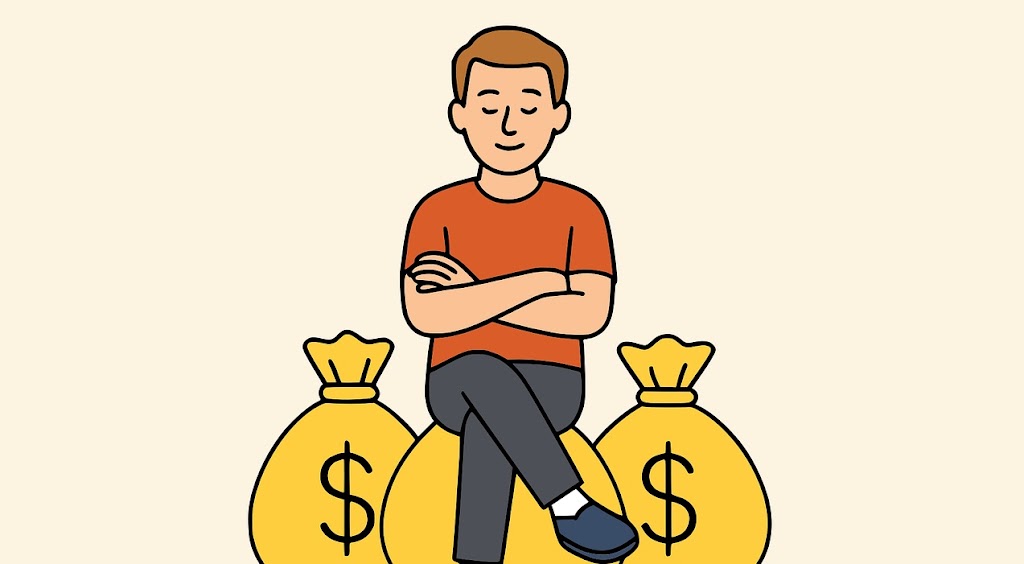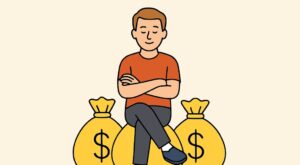Hey there!
If you’re reading this, you’re probably wondering whether affiliate marketing is really worth your time or if it’s just another internet pipe dream.
Well, I’ve got a story for you.
Over the past couple of months, I managed to make just over $5,000 online. And no, I didn’t have a massive audience, a fancy website, or a big budget.
Here’s exactly what I did (and what I didn’t do) to make it happen, step by step. Hopefully, it helps you skip some of the trial and error.
Why I Chose Affiliate Marketing
Honestly, I was tired of trading hours for money. I’d dabbled in freelancing and online gigs before, but I wanted something more scalable—something that could keep growing even when I wasn’t glued to my laptop.
Affiliate marketing seemed like a solid place to start. Promote products I actually use, help others, and earn a commission when they buy through my link. Simple, in theory—but I soon realized strategy is everything.
How It All Started
Let me set the stage:
- Timeframe: Jan–Feb 2025
- Experience Level: Pretty much a beginner
- Budget: Around $150 for tools and setup
- Niche: AI tools
- Channels I used: Blog, YouTube, Reddit
Step 1: Picked a Niche That Pays
I didn’t go in blind—I spent a few days researching niches that were:
- In demand
- Growing fast
- Had products with decent affiliate payouts
I landed on AI tools for content creators and freelancers. These platforms were everywhere, and people were curious but confused. That’s where I stepped in—to simplify things and guide them.
Step 2: Built a Simple Blog (in 3 Days)
I got a domain, grabbed cheap hosting, and used WordPress with a free theme to get a basic site live. No bells and whistles—just clean, readable content.
Cost breakdown:
- Domain + hosting: $50
- Theme: Free
- Time spent: A couple of evenings
I added a home page, a blog, a tools/resources page (with my affiliate links), and an About Me section to make it feel more personal.
Step 3: Wrote 5 Super Helpful Blog Posts
These weren’t fluffy listicles—they were posts I would’ve wanted to read as a beginner. Topics included:
- “Copy.ai vs Jasper: Which One’s Worth It?”
- “Free ChatGPT Alternatives That Actually Work”
- “Best AI Tools for Freelancers in 2025”
Each one was 1,000–1,500 words, had screenshots, real use cases, and a few well-placed affiliate links. I made sure the content sounded personal and relatable.
Step 4: Turned My Blogs into YouTube Videos
No fancy editing or face cam I just recorded my screen using OBS Studio and added a voiceover. Some voiceovers were AI-generated, others I did myself.
Each video walked viewers through the tools, explained who they were for, and linked back to my blog. After a few weeks, I had:
- Over 500 subscribers
- Around 10,000 views
- A small but loyal audience
Step 5: Promoted My Content on Reddit and Facebook
This part was surprisingly effective.
I joined groups and subreddits where people were actively asking, “What’s the best AI writing tool?” Instead of spamming links, I replied with useful answers and sometimes included a link to my blog or video if it fit naturally.
Because I focused on being helpful, people actually clicked and engaged.
Step 6: Captured Emails with a Freebie
I offered a simple PDF download titled “Top 10 AI Tools for Content Creators” in exchange for emails.
- Used MailerLite (free plan)
- Created a clean landing page and opt-in form
- Grew my list to about 380 subscribers in 60 days
Every week, I sent out short emails with helpful tips and occasional product links. That list definitely helped boost my affiliate sales.
The Earnings Breakdown
Here’s how the income stacked up:
| Product | Commission per Sale | Total Earned |
|---|---|---|
| Jasper AI | $39 | $2,145 |
| Surfer SEO | $29 | $870 |
| Copy.ai | $36 | $1,368 |
| Writesonic | $19 | $456 |
| YouTube Ads | — | $165 |
| Total | $5,004 |
Not bad for two months and a handful of tools.
What Worked and What Didn’t
What Worked:
- Choosing a niche that’s both in-demand and pays well
- Creating genuinely helpful blog posts and videos
- Promoting in communities without being salesy
- Building an email list early on
- Being consistent, even when the results were slow at first
What Didn’t:
- Posting affiliate links with no context—zero clicks
- Ignoring SEO in my first few blog posts
- Trying to do everything alone—I got overwhelmed a few times
Final Thoughts
Making over $5,000 in 60 days didn’t happen overnight. It took effort, focus, and a whole lot of testing. But I didn’t do anything special or secretive. I just kept things simple and focused on helping people find tools that made their lives easier.
If you’re thinking about getting into affiliate marketing, my advice is to start small, be real, and focus on value. Everything else follows.
Feel free to leave a comment if you have questions or want to know more about the tools I used. Happy to help however I can.




